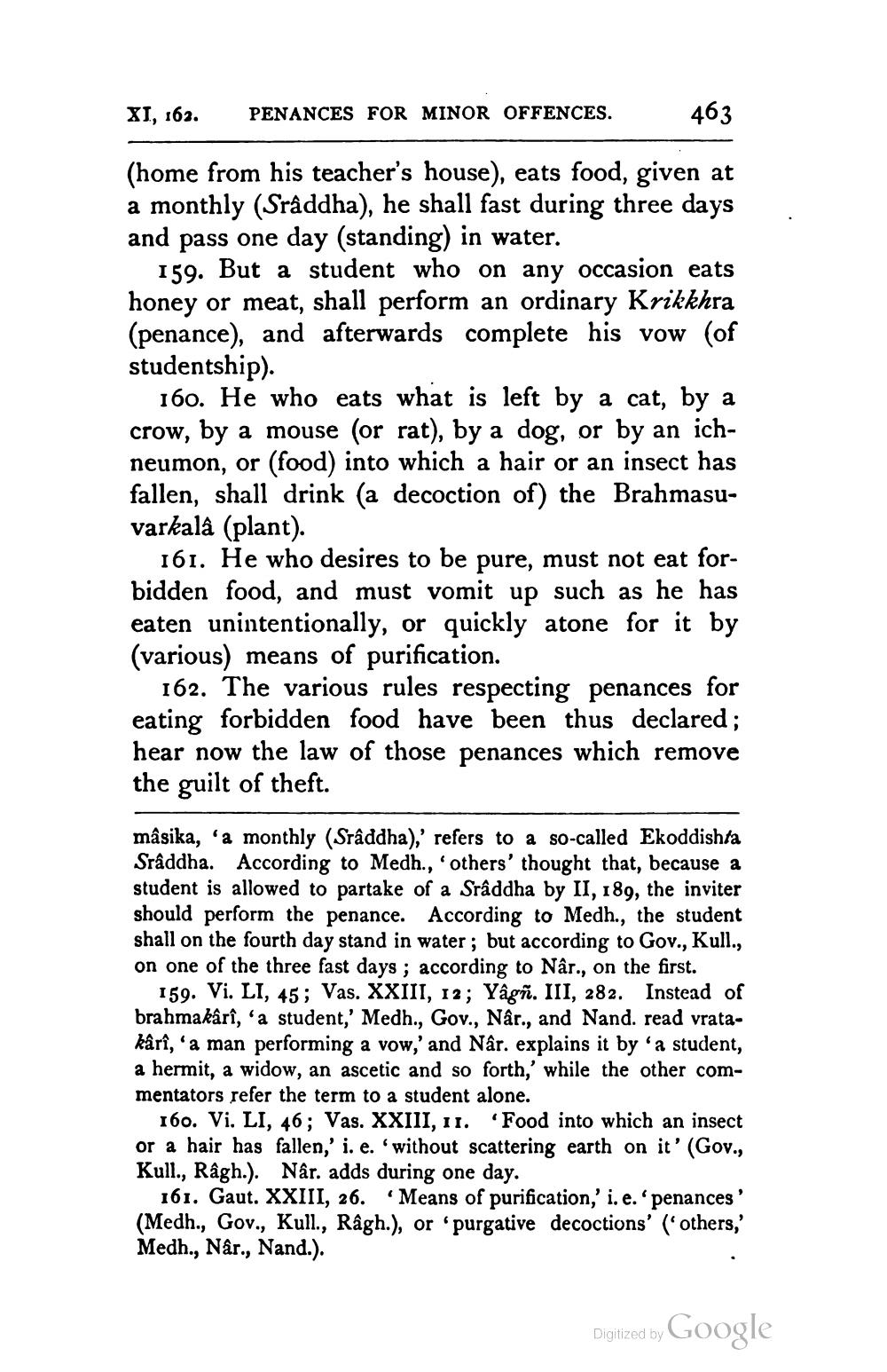________________
XI, 162.
PENANCES FOR MINOR OFFENCES. -
463
(home from his teacher's house), eats food, given at a monthly (Sraddha), he shall fast during three days and pass one day (standing) in water.
159. But a student who on any occasion eats honey or meat, shall perform an ordinary Krikkhra (penance), and afterwards complete his vow (of studentship).
160. He who eats what is left by a cat, by a crow, by a mouse (or rat), by a dog, or by an ichneumon, or (food) into which a hair or an insect has fallen, shall drink (a decoction of) the Brahmasuvarkala (plant).
161. He who desires to be pure, must not eat forbidden food, and must vomit up such as he has eaten unintentionally, or quickly atone for it by (various) means of purification.
162. The various rules respecting penances for eating forbidden food have been thus declared ; hear now the law of those penances which remove the guilt of theft.
mâsika, 'a monthly (Sraddha),' refers to a so-called Ekoddishta Sraddha. According to Medh., 'others' thought that, because a student is allowed to partake of a Sraddha by II, 189, the inviter should perform the penance. According to Medh., the student shall on the fourth day stand in water ; but according to Gov., Kull., on one of the three fast days; according to Nâr., on the first.
159. Vi. LI, 45; Vas. XXIII, 12; Yâgñ. III, 282. Instead of brahmakârî, a student,' Medh., Gov., Nâr., and Nand. read vratakârî, 'a man performing a vow,' and När. explains it by 'a student, a hermit, a widow, an ascetic and so forth,' while the other commentators refer the term to a student alone.
160. Vi. LI, 46; Vas. XXIII, 11. "Food into which an insect or a hair has fallen,' i. e. 'without scattering earth on it'(Gov., Kull., Râgh.). Nar. adds during one day.
161. Gaut. XXIII, 26. Means of purification,' i.e.'penances' (Medh., Gov., Kull., Râgh.), or purgative decoctions' ('others,' Medh., Når., Nand.).
Digitized by Google




